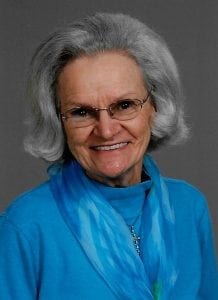No one likes to be judged. However, during the many years that I’ve been involved with rare diseases families, I’ve learned that some people are very quick to judge parents of rare and special children. With no idea of what it is these people are dealing with, others might think that they know how to handle situations better than the parents do. They might assume that a parent is either being too strict or is spoiling their child.
Parenting is not easy. We were all perfect parents before we had children. We have all looked at the way others handle their children, and thought we could do better, but the fact is that there are no perfect parents and no ideal ways of treating children.
Consider how difficult it is to raise healthy children, and then add the extraordinary circumstances brought about by a child that has extraordinary needs, and you might develop a little understanding and compassion.
When you see a child having a melt-down in a public place, please don’t assume that the child is spoiled. Please be aware that the parent might have preferred to leave that child at home, but there was no one available to help. They might be on their way to or from a difficult doctor visit. The child might be overtired from having a tough night hooked up to a machine, or the child might be living with constant pain, but that’s not visible to an observer.
There are numerous reasons for things to go wrong, so instead of judging the parent, perhaps you could ask if she/he needs any help. I remember feeling very hurt for my daughter Kelley when someone would say she was being lazy when in fact she simply didn’t have the energy to do something they wanted her to do at that time.
Too often I’ve heard parents lament the way in which professionals, who should know better about the limitations that a condition causes, make snap judgments without taking the time to listen to the concerns the parents have. They don’t stop to think about how living with rare conditions, be them physical, mental, or both can be exhausting. These parents aren’t tired from a night-out-on-the-town, they are tired from many nights of interrupted sleep.
I believe I can speak for other rare parents when I say that we want our family, friends, and neighbors to understand that we live under constant stress. We judge ourselves harshly enough. We don’t need you to pass judgment on our parental decisions. Remember how you felt the last time one of your children had an issue that was difficult to deal with, and realize we live that way all the time. Imagine leaving a medically-compromised child with strangers in for necessary treatments. Imagine watching the child being wheeled into the operating room and spending hours waiting to hear if the surgery was successful.
It is so important to us that the doctors, nurses, therapists, teachers, and other professionals take the time and effort to consider the fact that when you see us, you might tell us something you think we should do, or tell us something that is difficult for us to hear, and then you will move on to the next family. We would like us to ask us what you could do to help us before you leave us. You might not have solutions, but you need to take the time to listen to our concerns without judging us.
It would be beneficial to us for everyone to realize that it hurts when you judge us. What we really need is your understanding and support.
 About the Author: Denise Crompton and her husband Bob, raised four children, the oldest of whom, Kelley, had the rare disease of Mucolipidosis 3. The many years that they spent caring for Kelley prompted Denise to write two books. Kelley’s Journey: Facing a Rare Disease with Courage chronicles their own daughter’s experiences. Diagnosis: Rare Disease includes some of the experiences of 12 more families, and was written to help raise awareness of all that is involved in living with rare conditions. All of Denise’s royalties go toward rare disease research. The Cromptons live in New Hampshire, where they spend their retirement years enjoying their many grandchildren, while still reaching out to help families with rare diseases.
About the Author: Denise Crompton and her husband Bob, raised four children, the oldest of whom, Kelley, had the rare disease of Mucolipidosis 3. The many years that they spent caring for Kelley prompted Denise to write two books. Kelley’s Journey: Facing a Rare Disease with Courage chronicles their own daughter’s experiences. Diagnosis: Rare Disease includes some of the experiences of 12 more families, and was written to help raise awareness of all that is involved in living with rare conditions. All of Denise’s royalties go toward rare disease research. The Cromptons live in New Hampshire, where they spend their retirement years enjoying their many grandchildren, while still reaching out to help families with rare diseases.







